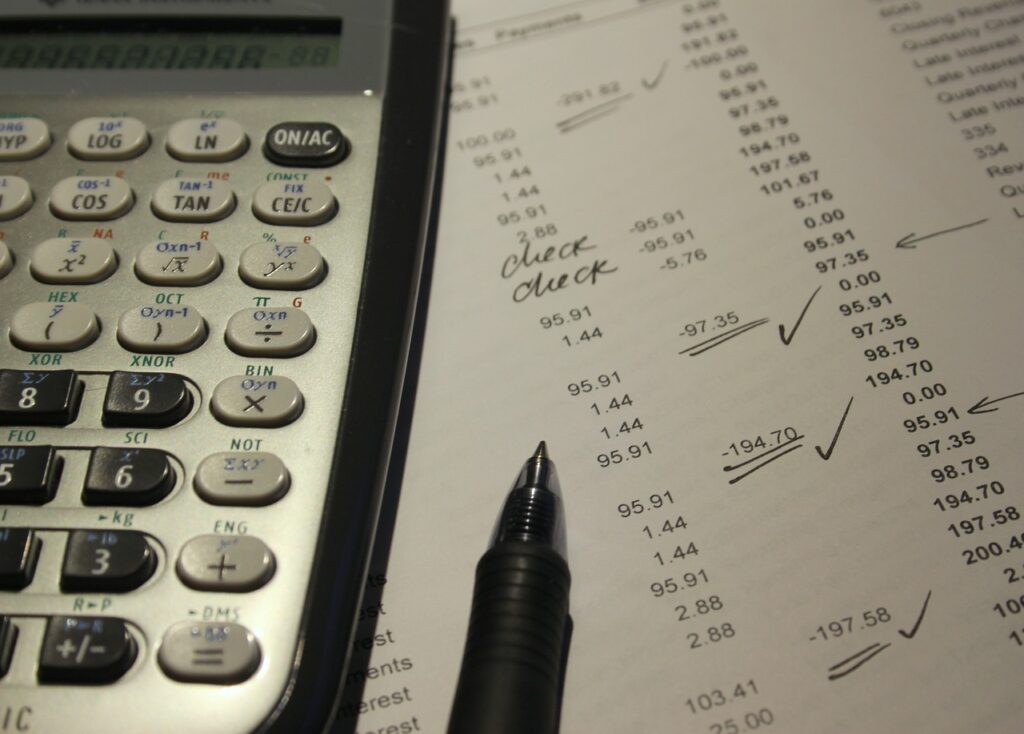Your Guide to Navigating Florida Housing with a Bank Statement Loan
Owning a slice of paradise in Florida might feel like an impossible dream, especially if you’re unemployed or have a unique income stream. If you’re part of the 6.4% of Floridians who are self-employed, luckily, there’s an alternative path to homeownership right at your fingertips. Florida bank statement loans offer a solution for those who have difficulty qualifying for a conventional loan due to their income structure.
In this guide, we’ll be diving into everything you need to know before getting a bank statement loan in the Sunshine State. Let’s get started!
What is a Bank Statement Loan?
A bank statement loan is a type of non-QM loan (non-qualified mortgage) that lets you use your bank statements to qualify instead of traditional income documents. It’s perfect for self-employed individuals and entrepreneurs who don’t have access to documents like pay stubs and W2s or whose tax returns don’t reflect their true income.
To assess your eligibility, bank statement lenders add up your deposits from the past 12 to 24 months and divide them by the number of months to see the average monthly deposit amount. This figure helps them determine how much home you can afford without any other documents.

Who Would Benefit From a Florida Bank Statement Loan?
To put it simply, anyone who has difficulty proving their income through traditional income verification methods could benefit greatly from a Florida bank statement loan. This includes, but is not limited to:
- Entrepreneurs
- Gig workers
- Independent Contractors/1099
- Real Estate Investors
- Influencers
- Freelancers
- E-commerce Professionals
- Individuals With Multiple Streams of Income
- Consultants
- Small Business-owners
- Self-employed Lawyers and Doctors
- Artists
- Truck Drivers
What’s the Difference Between a Bank Statement Loan and a Conventional Loan?
Taking a look at bank statement loans, they’re non-QM loans and they use bank statements to see if a borrower has sufficient income to repay the mortgage. Non-QM loans don’t have to follow the lending standards set by the Consumer Financial Protection Bureau (CFPB), so the qualification requirements are much more flexible.
In contrast, conventional loans are QM loans (qualified mortgage) and they use documents like W2s, pay stubs, and tax returns to confirm a borrower’s income. QM loans have to follow the CFPB lending standards, typically making them more difficult to qualify for due to the strict criteria that are required.
What Are the Qualification Requirements for a Florida Bank Statement Loan?
Since bank statement loans are non-QM loans, each lender can set their own qualification requirement. Because of this, requirements can vary greatly between lenders and we recommend reaching out to lenders directly.
While we can’t speak for other lenders, these are our requirements at Defy for our Florida bank statement loans:
- Minimum FICO score of 620+
- 12-24 months worth of bank statements (personal or business)
- Maximum LTV of 90%
- Maximum loan amount of $6M
- Interest-only options available

Pros and Cons of Getting a Florida Bank Statement Loan
Pros:
- Alternative income verification (no traditional income documents required, including tax returns)
- A wider range of people can apply
- Flexibility
- Faster approval process
- Potentially allows larger loan amounts
Cons:
- Limited availability
- Potentially has higher down payment requirements
- Potentially has higher interest rates
Bank Statement Loan Alternatives in Florida
Not sure if bank statement loans are for you? Fortunately, non-QM loans come in all shapes and sizes to fit the needs of a wide variety of borrowers. Here are some alternatives to consider:
- Profit & Loss (P&L) Loans: Ideal for business owners. Uses business P&L statements to qualify for a loan instead of tax returns.
- Debt-Service Coverage Ratio (DSCR) Loans: Ideal for real estate investors. Focuses on the property’s rental income potential to cover loan payments, not borrower income.
- Asset Depletion Loans: Ideal for individuals with significant liquid assets but no or low income. Uses the value of assets to secure the loan.
- Interest-Only Loans: Ideal for short-term investments or those expecting future income growth. Borrower only pays interest during the interest-only period, with both principal and interest payments required after that period is over.
- Fix-and-Flip Loans: Ideal for real estate investors or anyone looking to renovate and resell properties quickly. Finances the purchase and renovation of a property, but has a shorter loan term.
- Construction Loans: Ideal for those looking to build a home from the ground up. Finances the construction of a new property in installments, but also has a shorter loan term.
If you still have any doubts on which loan type is the best option for you, contact us at Defy and we can walk you through your options. We offer all of these loan types, and more!
FAQs:
- What is a bank statement loan?
A bank statement loan is a mortgage option that uses your bank statements to determine your qualification rather than traditional income documents like pay stubs, W2s, and tax returns.
- How do bank statement loans work?
Bank statement lenders analyze your deposits over a period (usually 12 to 24 months) to calculate your average monthly deposit amount. From there, they use this figure to see how much home you can afford.
- Is a bank statement loan a non-QM loan?
Yes, a bank statement loan is a non-QM loan (non-qualified mortgage). This simply means that the qualification requirements don’t have to follow the strict guidelines set by the Consumer Financial Protection Bureau (CFPB).
- Who would benefit from a bank statement loan in Florida?
Anyone who has a unique source of income would benefit greatly from a Florida bank statement loan. People who are entrepreneurs, small business owners, gig workers, freelancers, and more would be ideal candidates.
- Where can I get a bank statement loan?
Since bank statement loans are non-QM loans, they’re typically offered by private mortgage lenders who offer alternative loan products, like Defy!
- What’s the difference between a conventional loan and a bank statement loan?
The main difference between these two loan types is the way income is verified. Conventional loans rely on tax returns, pay stubs, and W-2s for income verification, while bank statement loans use bank deposits.
- What are the qualification requirements for a bank statement loan?
Lenders have the ability to set their own qualification requirements for bank statement loans, which means that they can vary significantly depending on the lender. To give you a better idea of what you might need, these are our bank statement loan requirements at Defy:
- Minimum FICO score of 620+
- 12-24 months worth of bank statements
- Maximum LTV of 90%
- Maximum loan amount of $6M
- Interest-only option available
- Can I get a bank statement loan with bad credit?
It’s not impossible to get a bank statement loan with bad credit, but it could be difficult. Each lender sets their own qualification requirements, so it’s recommended to reach out to lenders directly to see if they can accept your credit score.
- What credit score do I need to qualify for a bank statement loan?
The minimum credit score for a bank statement loan can vary between lenders, but generally, it ranges from 600 to 660. At Defy, we require a minimum FICO score of 620 or more for our bank statement loans.
- Can I get a bank statement loan with no down payment?
No, it’s very unlikely that you can get a bank statement loan with no down payment. Usually, some form of down payment is required.
- How much of a down payment do I need for a bank statement loan?
The exact amount may vary by lender since each lender can set their own down payment requirements. However, most lenders require anywhere between 10-30% down.
- What are the pros and cons of getting a Florida bank statement loan?
Pros:
- Alternative income verification (no traditional income documents required, including tax returns)
- A wider range of people can apply
- Flexibility
- Faster approval process
- Potentially allows larger loan amounts
Cons:
- Limited availability
- Potentially has higher down payment requirements
- Potentially has higher interest rates
- Are bank statement loans available in other states besides Florida?
Yes! Bank statement loans are available nationwide, including in California, Texas, Tennessee, and Georgia.
- Do banks offer bank statement loans?
Most banks do not offer bank statement loans since they’re considered an alternative loan product. They’re usually offered by private mortgage lenders who specialize in non-QM loans.
- Can I use a bank statement loan to buy a vacation home in Florida?
Yes! You can use a bank statement loan to buy a vacation home in Florida. It can be much easier to qualify for a vacation home loan using a bank statement loan if you’re self-employed.







